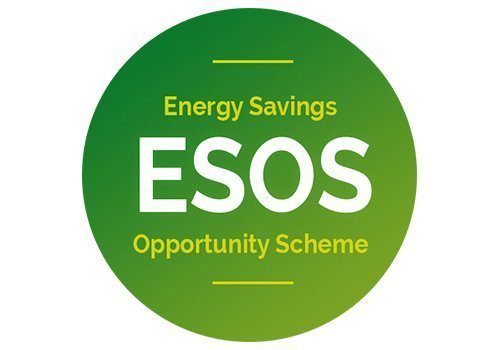As part of ESOS, qualifying businesses must track and report energy usage across their buildings, processes, and transport. They’re also encouraged to find cost-effective ways to cut consumption. The scheme runs in four-yearly phases. We’re currently in phase 3, and the countdown to compliance has begun. Dan Ellis, head of sustainability, Adler and Allan, discusses how to ready your operations for the 5 December 2023 ESOS phase 3 deadline – and why it’s wise not to wait.
Does my business qualify for ESOS phase 3?

You need to carry out an ESOS assessment if you have:
- More than 250 employees in the UK; or
- A turnover exceeding £44.1m AND a balance sheet exceeding £37.9m
Whole corporate groups also qualify if at least one UK group company meets these measures.
If you took part in the two previous ESOS phases, it’s likely you’ll need to participate in phase 3.
My company qualifies for ESOS. What do I need to do?
ESOS assessment is a six-stage journey – from measuring energy use to Environment Agency reporting and recordkeeping.
Working with a trusted partner can streamline the process, helping you navigate audit requirements and ensure your submission fully complies with ESOS guidance.
1. Calculate your business’s total energy consumption
You’re required to measure all energy use across your premises, industrial processes, and fleet.
Under ESOS, energy is defined as combustible fuels, heat, renewable energy, electricity, and transport fuel.
Your assessment should cover a representative sample of your operations and sites, and results should be presented in a common unit, such as pounds sterling or kilowatt-hours.
2. Identify and audit areas of significant energy consumption
Pinpoint which assets and activities account for at least 95% of your overall energy usage. Up to 5% of your energy consumption can be classed as ‘de minimis’ and omitted from your calculations.
Once you’ve identified your highest consumption areas, you need to audit them against minimum government requirements. Any energy audits conducted between December 2019 and December 2023 count towards ESOS compliance.
3. Create an ESOS compliance plan
Use your audit results to map out energy- saving opportunities. Your plans should outline practical ways to minimise waste and improve energy efficiency – and detail their estimated cost benefits.
An experienced sustainability consultant can produce a comprehensive ESOS compliance plan, including innovative and achievable solutions – from installing EV charge points to embracing renewable energy and alternative fuels.

4. Appoint a lead assessor to review your report
A lead assessor oversees your energy audits and signs off your final ESOS assessment.
They can be a professionally registered employee but working with an external specialist can guarantee compliance and place decades of industry experience on your side.
5. Notify the Environment Agency
When your ESOS assessment is complete, you need to submit your notification of compliance to the Environment Agency.
6. Keep accurate compliance records
You’re expected to maintain records of how you’ve complied with ESOS in an evidence pack – and you’re free to choose the format.
Are there penalties for not complying with ESOS?
Yes, and they’re getting steeper. Failure to notify the Environment Agency, for example, can lead to an initial penalty of up to £5,000 and a daily fine of up to £500 for each working day of non-compliance. Making a false or misleading statement could lead to fees of up to £50,000.
When should my business begin its ESOS assessment?
As soon as possible. The deadline for ESOS submissions is 5 December 2023, but it pays to get ahead of the curve.
In previous phases, organisations that delayed their audit faced a shortage of lead assessors and a race to secure the right expertise.
Early action means early benefits, including measurable cost savings, energy efficiencies and the confidence of total compliance.
What has changed in phase 3?
The ‘de minimis’ threshold for ESOS Phase 3 has reduced from 10% to 5%. This means you now need to ensure that 95% of your total energy consumption is covered by an appropriate ESOS energy audit.
The Environment Agency has indicated that businesses will not be allowed to simply replicate the same historical ESOS energy audits for ESOS Phase 3. It expects to see different and progressive energy audits rather than ‘tick-box’ compliance activity.
Getting ahead
Proposed changes to Phase 4 of ESOS will require you to link energy and carbon and have a decarbonisation plan alongside your energy audit. We offer this as standard, so get ahead of the curve with ESOS Phase 3 and ensure your business is on the road to decarbonisation.
